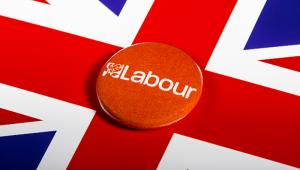
Results in last week’s local election turned out to be far more dramatic than anyone expected.
For the Conservatives, the loss of more than a thousand seats and 40 councils is little short of catastrophic while Labour will be concerned to be moving backwards on their 2015 position and to be losing heartland councils like Middlesbrough or Bolsover. Meanwhile the Liberal Democrats, Greens and Independents have been resurgent.
There has been a fierce debate on whether the predominant message from voters is to stop Brexit or to get on with it but there seems to be consensus that Brexit is what these elections were ‘really’ about.
And, of course, that must be true to some extent. Every year I argue that we should treat local elections for what they are and not as a glorified opinion poll, but this year of all years it seems perverse not to acknowledge that national politics will have been first and foremost in many voter’s minds (though not all.)
Every year I argue that we should treat local elections for what they are and not as a glorified opinion poll, but this year of all years it seems perverse not to acknowledge that national politics will have been first and foremost in many voter’s minds (though not all.)
So Brexit may well be a dominant factor but that still leaves us in the odd position of having an extraordinary set of local election results in which no one is actually talking about local government.
That’s problem for two reasons.
Firstly, because Brexit did not just come out of nowhere and does not exist in a vacuum.
Brexit is as much a symptom as a cause.
It cannot be separated from the profound crises affecting housing, care and local economies.
Across the country, councils have been systematically undermined for a decade and they are close to breaking point.
They face growing pressures on vital services with less money to pay for them and no clear direction from government as to how they will be funded beyond 2020.
Just last week, we saw a major care home provider go into administration and a select committee report that highlighted a £3.1bn minimum funding gap in children’s services. These challenges and Brexit do not exist in separate political universes, they are two sides of the same coin.
Every day that the government ignores these problems they become more urgent and harder to solve. But while we are all talking about Brexit we are not talking about how we meet these challenges or how address the urgent and essential task of transforming local public services and reinvigorating local democracy and civic life.
And, actually, the fact that we all talking about Brexit and we are not talking about these things is another of the ways in which local government is let down by dysfunctional national politics.
Secondly, we shouldn’t forget that, whatever people’s thinking as they stood in the ballot box, these were in fact local government elections and their practical consequence is the election of councillors.
Faced with profound challenges and political paralysis at national level, local government continues to step in and pick up the pieces. But that means tough decisions about vital services like housing, care of older people, school places, children’s services, libraries, streets and refuse collection.
All the things that matter most in our day to day lives. Those tough decisions will be led by local councillors.
Eight thousand of them were elected on Friday. That’s not a trivial matter and it deserves far more attention than it gets.




















